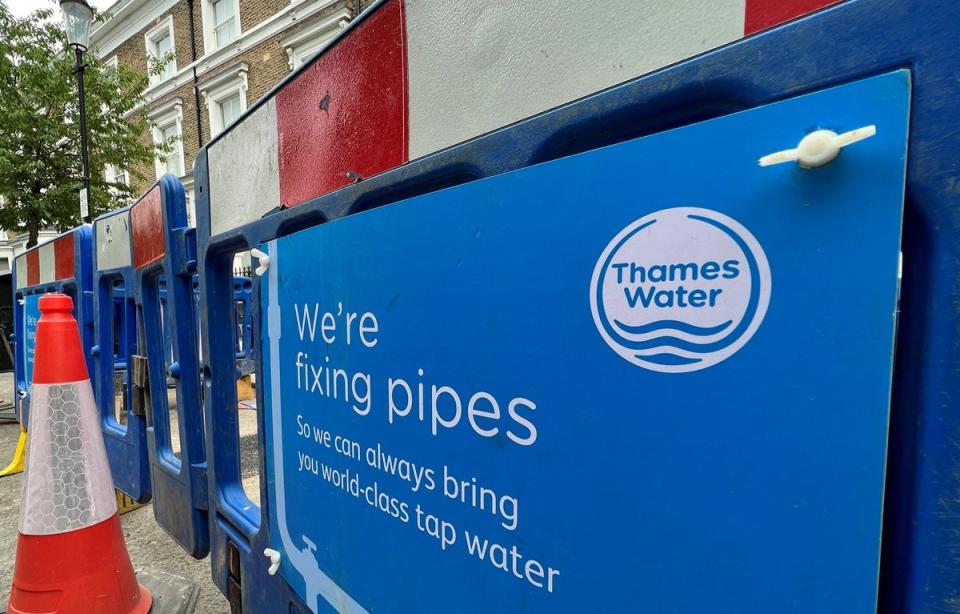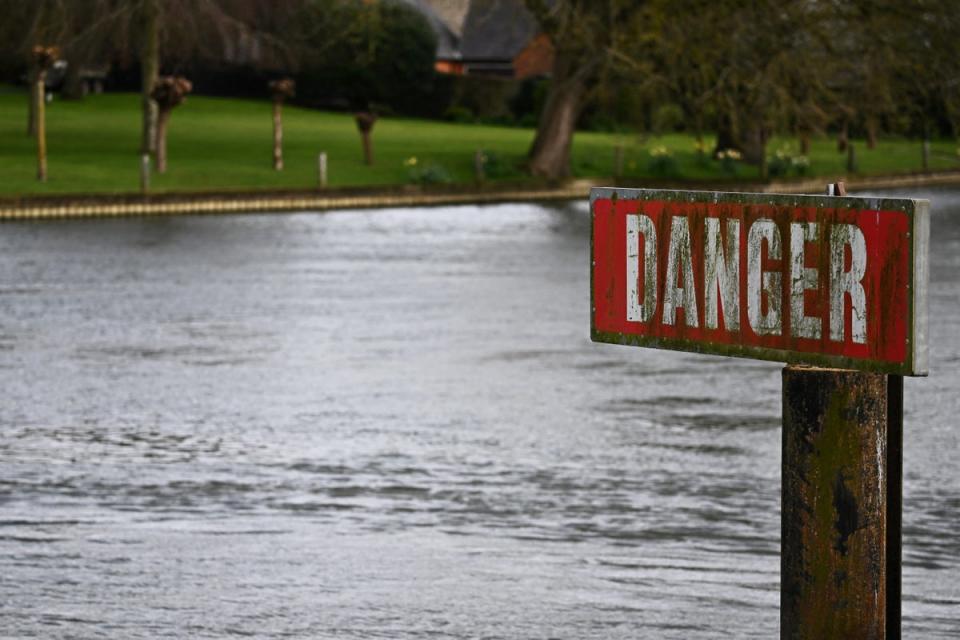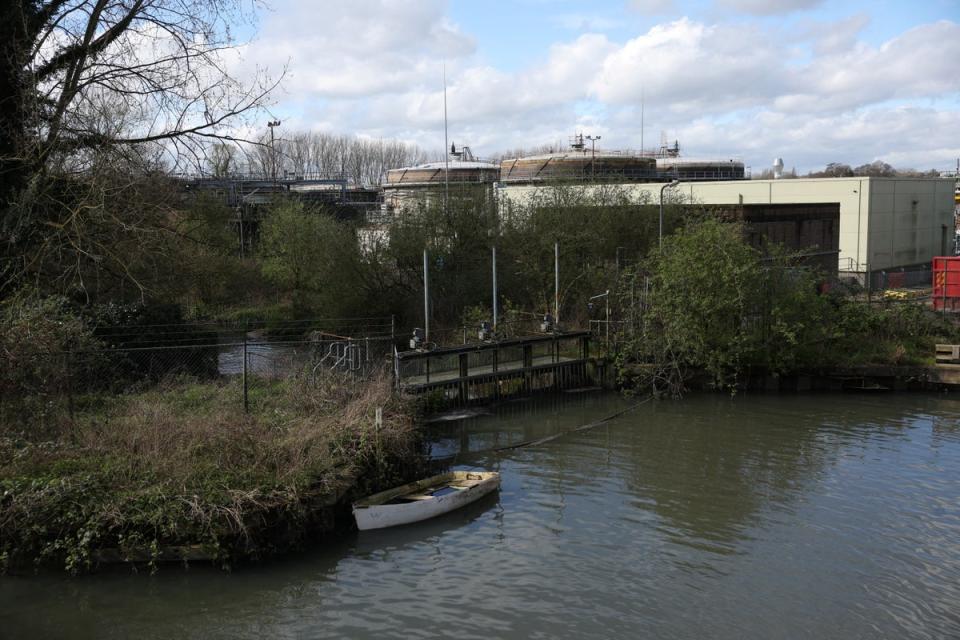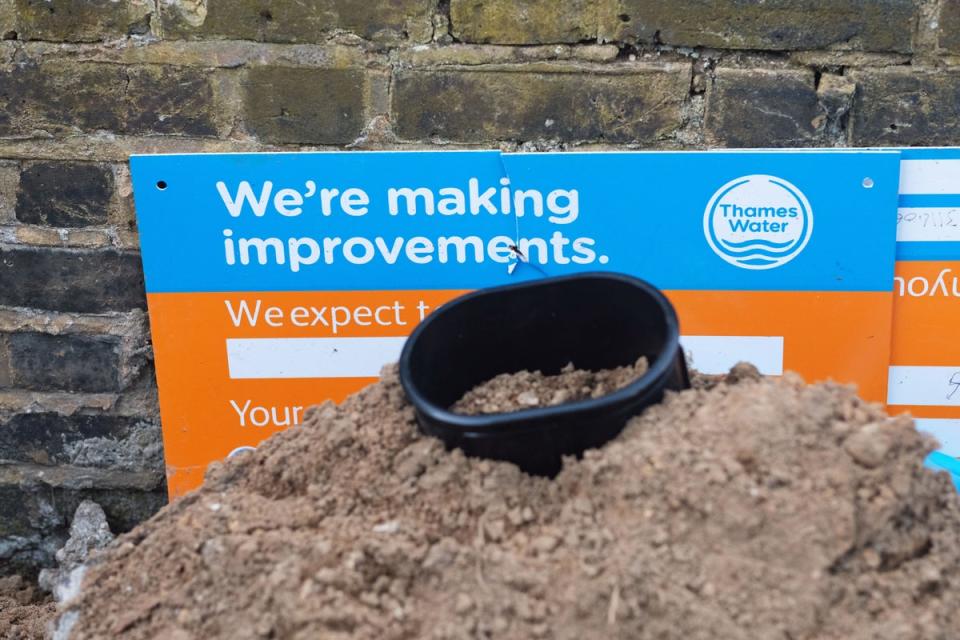Thames Water customers face 40 per cent bill hike as investors refuse to inject £500m lifeline
Shareholders have backed out of plans to inject £500m of funding into troubled utility Thames Water, sparking concerns of a government bailout that could cost the taxpayer billions.
Chief executive Chris Weston, meanwhile, refused to rule out bill increases of up to 40 per cent for customers, as the firm struggles with increasing debts and huge interest payments.
The beleaguered utility company revealed its shareholders had withheld the vital money because they say demands by regulators left its business plan “uninvestable”.
Labour urged the government and regulators to “do everything in their power to stabilise” Thames Water, with Jeremy Hunt saying that the Treasury will monitor the situation “very carefully”.
While Mr Weston said that the company would be able to cover its operating costs until next year, he admitted there was a “possibility” of the firm going into special administration if extra money is not invested.

When asked on Sky News if bills could be hiked to fill the gap, Mr Weston replied: “I don’t think we have been at all secretive about that.
“But the plans that we have put forward – which are very much in accordance with what customers are asking us to do – require an investment of around £20bn in that 2025-2030 period, and that would result in a bill (increase) of around 40 per cent.”
Meanwhile, the GMB union accused shareholders of “essentially blackmailing customers and Ofwat” ahead of a meeting with Thames Water this morning.
GMB national officer Gary Carter said: “Assets and infrastructure are falling apart – instead of putting the money in to fix it, shareholders are refusing to pay a penny unless bills are allowed to rocket.
“Holding bill payers to ransom for costs after years of underinvestment is completely unacceptable.
Thames Water – the UK’s biggest water supplier with 15 million households across London and the South East – said the funding plan drawn up last July was subject to conditions, including a business plan supported by “appropriate regulatory arrangements”.
The company has been battling to secure its future since last summer, with a funding crisis leaving the debt-laden firm on the brink of emergency nationalisation.

Thames Water has been left with debts of nearly £15bn, while it has also missed sewage spill and leakage targets with the bosses coming under intense scrutiny over the firm’s performance.
Much of the debt was run up by previous owner Macquarie, which sold the utility to its present consortium of owners in 2017.
Macquarie, an Australian investment bank, took £1.2bn of dividend payments from the water company during its decade of ownership.
The debt has also been inflated by recent shareholder payouts, with Thames Water agreeing to pay a £37.5m dividend in October last year.
It has also paid out about £3.7m worth of bonuses, benefits and incentives to company executives over the last three years, while total executive pay, which includes base salaries, surpassed £10.6m over the last four financial years.
Steve Reed, the Labour shadow environment secretary, said: “The Conservatives weakened regulation, allowing water companies to get massively in debt while the sewage system crumbled and illegal sewage dumping hit record levels.
“The Conservatives’ negligence is why the country’s largest water company is now in this worrying position.”

Thames Water was privatised alongside all other water companies in England in 1989 under Margaret Thatcher, when she sold off the nationalised water and sewage industry for £7.6bn.
It has since proven controversial, with water quality improving but debts accumulating and the nine large companies paying out as much in dividends as they have made in profits.
Last summer, a rescue funding plan was agreed with shareholders, including a Canadian pension fund and China’s sovereign wealth fund, that would see them pump in £750m overall with the first £500m due by the end of this month.
But it is understood that industry watchdog Ofwat has refused to bow to the water giant’s demands for concessions, said to include a 40 per cent bill hike for customers, an easing of capital spending requirements as well as leniency on regulatory penalties.

The firm has now said these regulations make the plan “uninvestable”, and as a result the shareholder support letter from last July “has not been satisfied”.
“The first £500m of the new equity that had been anticipated will not be provided by Thames Water’s shareholders by 31 March 2024,” it revealed.
Thames Water said it was in ongoing talks with industry regulator Ofwat to secure regulations that are “affordable for customers, deliverable and financeable for Thames Water, as well as investible for equity investors”.
It said once the new regulatory plan is agreed with Ofwat, it “intends to pursue all options to secure the required equity investment from new or existing shareholders”.
Mr Weston said: “Our 8,000 staff remain committed to working with our partners in the supply chain to provide our services for the benefit of our customers, communities and the environment.”

He later told BBC Radio 4’s Today programme: “If at the end of the day, probably well into the end of next year, we were in a situation where we had no equity then there is the prospect of special administration, but we are a long way from that point at the moment.”
Ofwat has said the water company must seek further funding for its turnaround plan, but sought to assure customers that “safeguards” were in place to protect services to households.
An Ofwat spokesperson said: “Safeguards are in place to ensure that services to customers are protected regardless of issues faced by shareholders of Thames Water.
“Today’s update from Thames Water means the company must now pursue all options to seek further equity for the business to turn around the performance of the company for customers.”
They added: “Thames Water is a business with a regulatory capital value of £19bn, with £2.4bn of cash/liquidity available, and an annual regulated revenue of £2bn and new leadership team.”

In a joint statement, Thames Water’s nine investors claimed that Ofwat had “not been prepared to provide the necessary regulatory support” for their funding and turnaround plan.
They insisted their funding agreement “was a solution which addresses the root cause of Thames Water’s challenges without the need for any taxpayer funding”.
They added: “However, after more than a year of negotiations with the regulator, Ofwat has not been prepared to provide the necessary regulatory support for a business plan which ultimately addresses the issues that Thames Water faces.
“As a result, shareholders are not in a position to provide further funding to Thames Water.”

 Yahoo Lifestyle
Yahoo Lifestyle 
